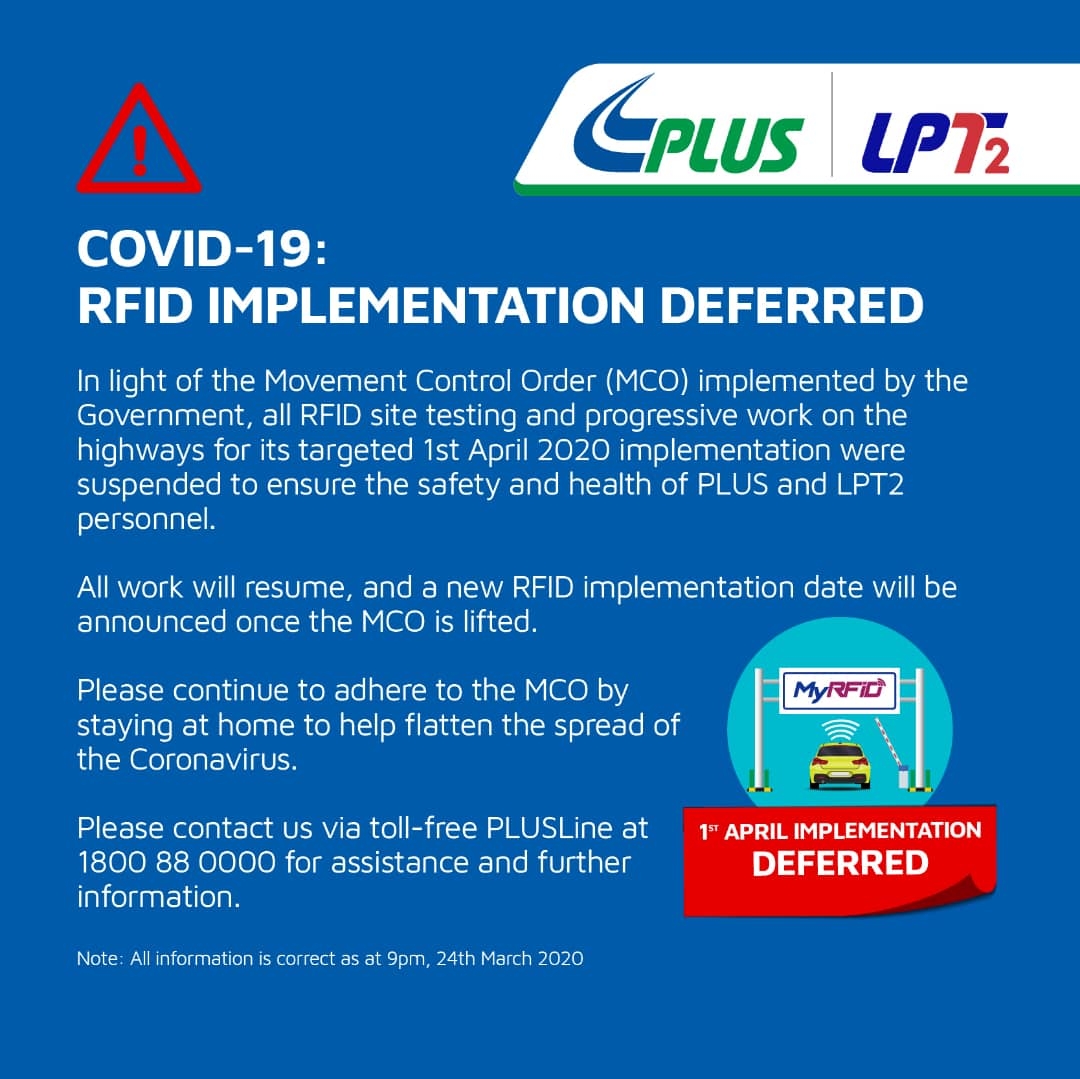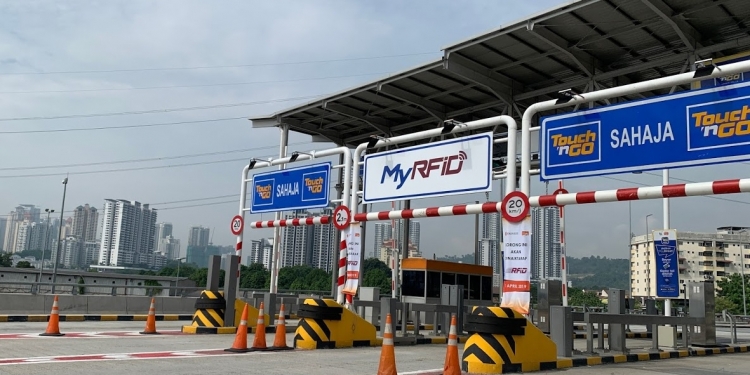Highway concessionaire, PLUS Malaysia, has announced that the RFID implementation at all remaining closed-toll system highways has been deferred due to the current COVID-19 outbreak situation. This means road users will have to continue using their physical TNG card or Smart TAG as their payment method while travelling via the North-South Expressway or LPT2 highways.
According to PLUS, the safety and health of PLUS employees is their main priority, and all testing and progressive works to implement the RFID system has been suspended temporarily under the Movement Control order (MCO). The implementation works will continue after the MCO is lifted and a new date will be announced later.

The TNG RFID support at all remaining 83 closed-toll plazas on the PLUS highway was supported to start on 1st April 2020. This will also include the LPT2 (East Coast Expressway Phase 2) that has 10 toll plazas.
PLUS believes that the MCO is an important measure to protect the health, safety and wellbeing of not just their employees, but all Malaysians as well. PLUS also reminds all road users to obey the MCO and to stay at home to prevent the spread of COVID-19. Last week, PLUS has also announced that all Suraus located at its toll plazas and rest service areas will be closed down as a health and safety measure.
With TNG RFID, users can enjoy cashless transactions as all toll charges will be deducted from their eWallet. For a hassle-free experience, the eWallet also supports auto-reload via credit or debit card. Unless SmartTAG, RFID uses a sticker and there’s no battery required. Following the MCO, Touch ‘n Go has announced last week that all RFID fitment centres will be closed temporarily.
LPT1 which is managed by Anih Berhad has not made an announcement. The first phase of the East Coast Expressway is also scheduled to support TNG RFID from 1st April 2020.








